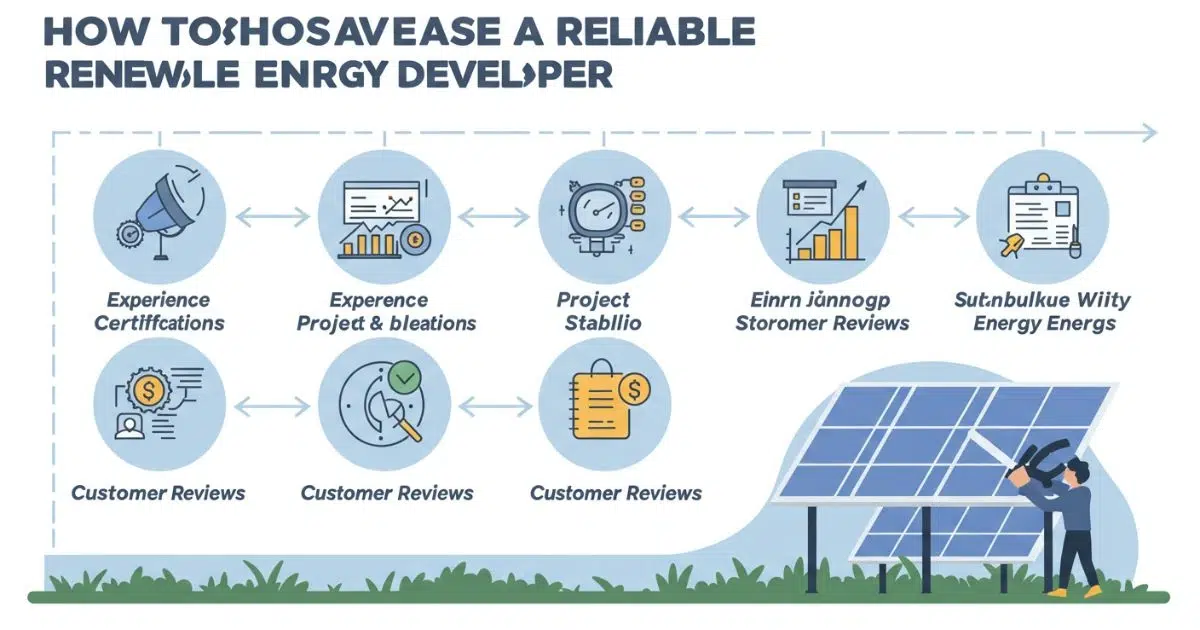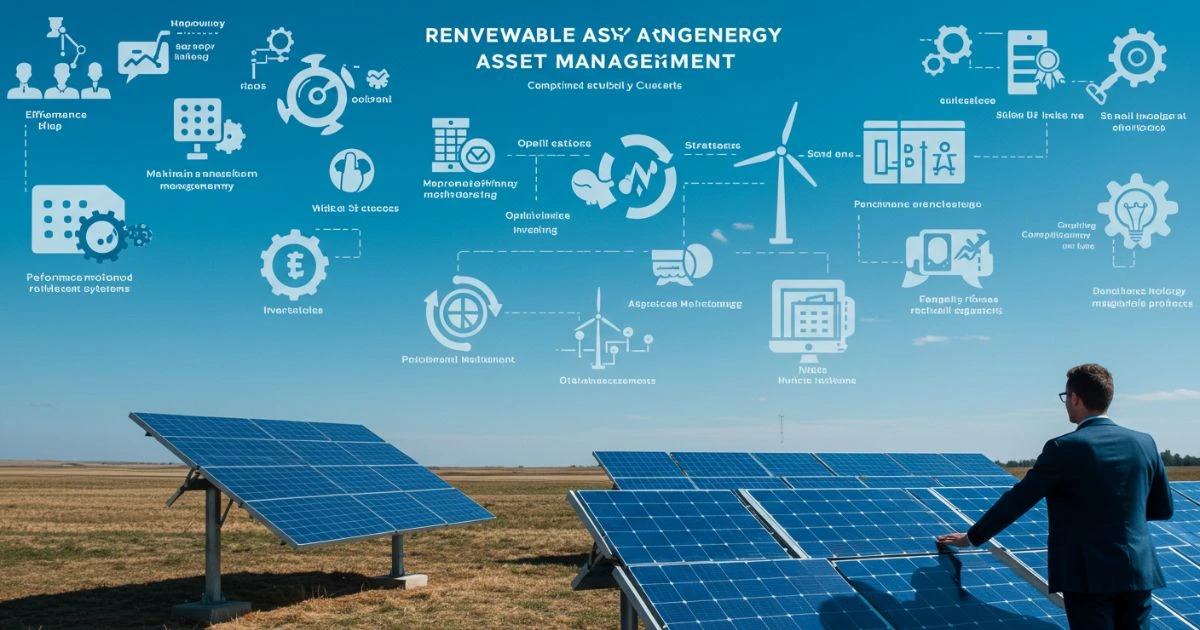How to Choose a Reliable Renewable Energy Developer
Finding the right renewable energy developer is key for your solar, wind, or green energy projects to thrive. With more companies in Texas and across the country, picking the right partner is crucial. A good developer affects your project’s timeline and your savings over time.
Many face challenges in judging a developer’s skills, past work, and financial promises. This guide makes it easier, helping you steer clear of costly errors. It shows how to check for certifications, look at their past projects, and find partners in Texas for a solid investment.
Key Takeaways
- Selecting a licensed renewable energy developer protects your project’s legal and financial integrity.
- Renewable energy companies in Texas often specialize in regional challenges, like local zoning or climate conditions.
- A developer’s past projects prove their ability to meet deadlines and budget targets.
- Certifications such as NABCEP or IREC accreditation verify technical competence.
- Comparing national and local renewable energy companies in Texas ensures competitive pricing and tailored solutions.
Understanding What Renewable Energy Developers Do
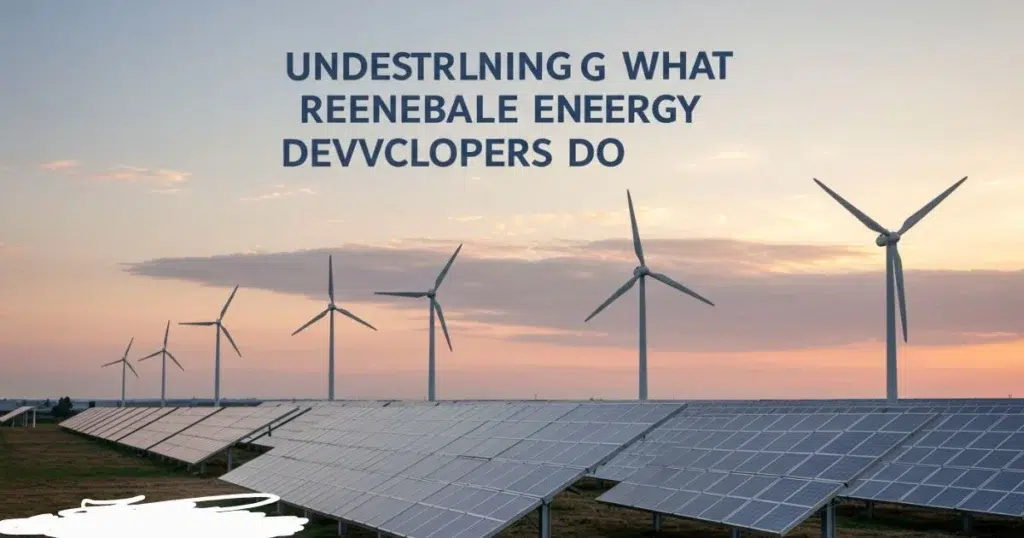
Choosing the right renewable energy developer is key. They lead your project from start to finish. They handle technical, financial, and logistical tasks to keep systems running well for years.
The Role of Renewable Energy Developers in Project Implementation
Here’s how they drive projects forward:
- Conducting site assessments to optimize energy output
- Negotiating permits and regulatory approvals
- Securing funding through grants or investor partnerships
- Overseeing construction timelines and quality control
- Implementing performance monitoring systems
Types of Renewable Energy Projects
They specialize in diverse systems like:
- Solar installations for homes, farms, or utility-scale arrays
- Wind farms requiring specialized grid integration
- Biomass facilities using organic waste streams
- Geothermal systems for heating and cooling
How Developers Differ from Other Energy Professionals
Unlike consultants who advise or contractors who install, renewable energy developers manage every phase. While equipment suppliers focus on hardware, developers ensure all components work together. Their expertise extends to renewable energy asset management, guaranteeing systems stay efficient over years. This holistic approach sets them apart from siloed service providers.
Identifying Your Renewable Energy Needs
Before you contact a renewable energy developer, know what you want. Ask yourself: Why do you want to use renewable energy? Do you want to save money, reduce your carbon footprint, or gain energy independence? Your answers will guide the project.
Look at your property and how you use energy. Homes might need rooftop solar panels, while big businesses could go for wind turbines or solar farms. Think about your budget and how fast you need the project done. Can you wait for grants or do you need it sooner?
Ask yourself these questions:
- How much energy do you use each month?
- Is there room for systems like solar arrays or geothermal setups?
- Are there tax breaks or rebates in your area?
- Do you need power all the time, or can you use grid backup?
In Texas, businesses often look for scalable solutions. A renewable energy companies in texas might focus on big projects, while smaller ones handle homes. Writing down your answers helps you compare what different developers offer.
Essential Qualifications to Look for in a Renewable Energy Developer
Choosing the right renewable energy developer is key. You need to check their qualifications to make sure they’re reliable and skilled. This ensures your investment is safe and your project will succeed.
Licensing and Certifications
Make sure they have the right licenses for your state and industry. Look for certifications like NABCEP (North American Board of Certified Energy Practitioners) or local permits. For example, St Louis Renewable Energy-Scotts Contracting has both state construction licenses and NABCEP certifications. This shows they follow safety and quality standards.
Experience and Project Portfolio
Ask to see their past projects. Choose developers with:
- Projects that match your needs (residential or commercial)
- Completed projects with good client feedback
- Experience with the energy type you want (solar, wind, etc.)
Companies like St Louis Renewable Energy-Scotts Contracting share detailed project case studies online. This shows their transparency.
Technical Expertise and Specializations
Make sure they specialize in the technology you need. They might be experts in:
- Solar panel installation and upkeep
- Wind turbine design and grid connection
- Geothermal system engineering
Having the right technical skills is crucial for a project’s success and long life.
Financial Stability and Insurance Coverage
A financially stable renewable energy developer can avoid delays. Look for:
- General liability and workers’ compensation insurance
- Bonding options for project guarantees
Reputable firms like St Louis Renewable Energy-Scotts Contracting will show proof of financial stability and full insurance coverage upfront.
Researching Potential Renewable Energy Companies in Texas and Beyond
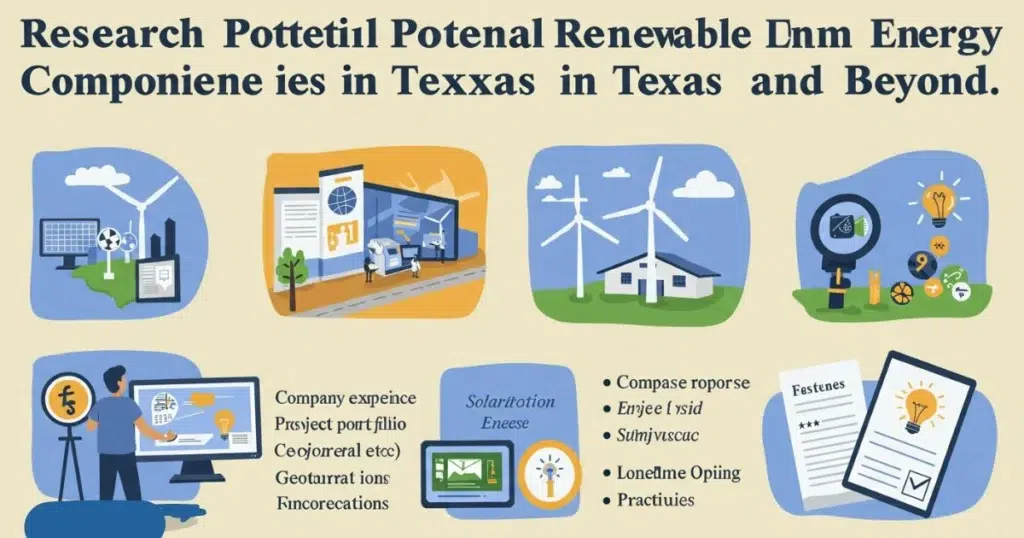
Start by looking at companies that fit your project’s needs. In Texas, focus on renewable energy companies in texas that know the local energy scene. Big firms offer standard solutions, while local experts have the local know-how.
Top-Rated National Developers
National companies bring big project experience and proven systems. They make getting permits and buying equipment easier. Look at their past projects to see if they’re a good fit for yours.
Regional Specialists Like St Louis Renewable Energy-Scotts Contracting
For local expertise, check out st louis renewable energy-scotts contracting. They understand local rules, the environment, and what the community wants. Their smaller teams mean quicker decisions and more personal service.
Online Tools for Smart Research
Here are some tools to help you find the right company:
- Industry directories like the Solar Energy Industries Association member list
- State-specific databases like the Texas Renewable Energy Alliance
- Review platforms such as Energy Sage or EnergySage Contractor Directory
- Government-verified lists from the U.S. Department of Energy
Check for certifications from groups like NABCEP or IREC. See if they’re members of these organizations. This helps you find the right mix of size and focus for your project.
Evaluating a Developer’s Track Record and References
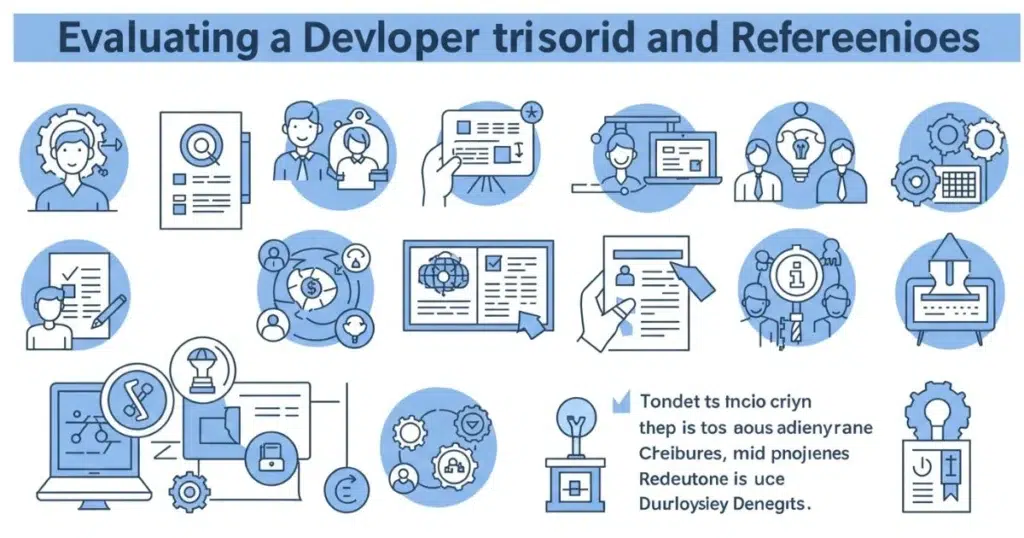
Before you choose a renewable energy developer, look into their past work. Ask for examples of projects similar to yours. Also, get references from clients with similar goals.
Make sure these clients can confirm the developer’s reliability. Check if they met deadlines and stayed within budget.
- Ask references: “How closely did the developer stick to deadlines?”
- Probe: “Did their costs stay within quoted estimates?”
- Seek feedback: “How did they handle unexpected challenges?”
Visit their completed projects to see their work. Look at how well the systems perform. Compare this to what others in the industry do.
See if they work with top renewable energy asset management companies for upkeep. This shows they’re committed to long-term success.
“A developer’s true value shows in how they resolve issues after installation.”
Check online reviews and BBB ratings for feedback. Look for any legal issues or complaints. Ask for written warranties and testimonials about their support after the project.
See how they’ve handled technical problems or changes in the past. A good track record means they can handle real-world challenges.
Understanding Renewable Energy Asset Management Capabilities
Switching to renewable energy is more than just setting it up. Renewable energy asset management keeps your system running well for years. It involves constant checks to get the most energy and less downtime. This is key to your system lasting longer.
Long-Term Maintenance Considerations
Good maintenance stops expensive problems. Look for services that include:
- Routine checks of panels, inverters, and wiring
- Early fixes for wear and tear
- Plans for quick action in emergencies
Performance Monitoring Systems
Top-notch renewable energy asset management uses smart tools like IoT sensors and AI. These track energy use in real time. They spot issues early, like shading on panels or slow turbines. Many offer dashboards for easy access to updates.
How Renewable Energy Asset Management Companies Support Project Longevity
“Our clients see a 15-20% performance boost after implementing proactive asset management,” says a spokesperson from Pattern Energy. “Proactive care extends equipment life by up to 30%.”
Some developers manage assets themselves, but working with renewable energy asset management companies brings in experts. Ask about:
- How fast they respond to problems
- How often they ensure systems are up
- What they charge for unexpected repairs
Whether done in-house or by experts, strong renewable energy asset management makes your investment last. It turns initial costs into reliable, long-term energy sources.
Key Questions to Ask Before Signing a Contract
Before you sign a deal with a renewable energy developer, ask important questions. You want to know about timelines, costs, and guarantees. This helps keep your project on track. Also, make sure to check the renewable energy asset management companies for any hidden fees or service gaps.
Project Timeline and Milestone Expectations
Ask for a detailed schedule with deadlines and what needs to happen first:
- What penalties apply if milestones are missed?
- Who handles delays caused by utility interconnection or zoning approvals?
- Will the developer share a Gantt chart showing interdependent tasks?
Pricing Structure and Payment Terms
Get all the cost details upfront:
- Are performance guarantees tied to pricing? (e.g., output-based payment adjustments)
- Does the contract include escalation clauses for inflation?
- How do renewable energy asset management companies charge for maintenance or software updates?
Warranty and Support Guarantees
Make sure all important parts are covered:
- Does the equipment warranty include parts and labor for inverters and panels?
- What response time do asset management companies promise for system alerts?
- Are software updates and cybersecurity protections included in warranty terms?
“A well-drafted contract should detail escalation paths for unresolved issues,” advises the North American Board of Certified Energy Practitioners.
Find out who is responsible for permits, inspections, and incentive applications. Ask for references from past clients with similar projects. This way, you can choose a developer who can meet their promises and fit your long-term plans.
Conclusion: Making Your Final Selection with Confidence
Choosing the right renewable energy developer is a big decision. You need to look at their qualifications, experience, and if they match your project. Start by checking if they have certifications and a track record of similar projects.
Look for developers who are open and supportive in the long run. Don’t rush into a decision. Low prices might mean they’re missing important details like maintenance or tracking performance.
Make a checklist to compare different developers. Check their licenses, look at their past work, and see if they have the right technical skills. Make sure their approach fits your goals.
For example, local experts like St. Louis Renewable Energy-Scotts Contracting might offer better local knowledge. Also, check if they are financially stable and have the right insurance. A good developer will give you clear plans, payment terms, and warranties upfront.
Your choice affects the environment and your wallet. Reliable developers mean less downtime and more savings over time. Take your time to review proposals carefully. Choose a developer who shares your vision for a sustainable future.
Your decision will impact energy efficiency and community benefits for years. It’s a big step towards a greener future.
FAQ
There are no reviews yet. Be the first one to write one.

